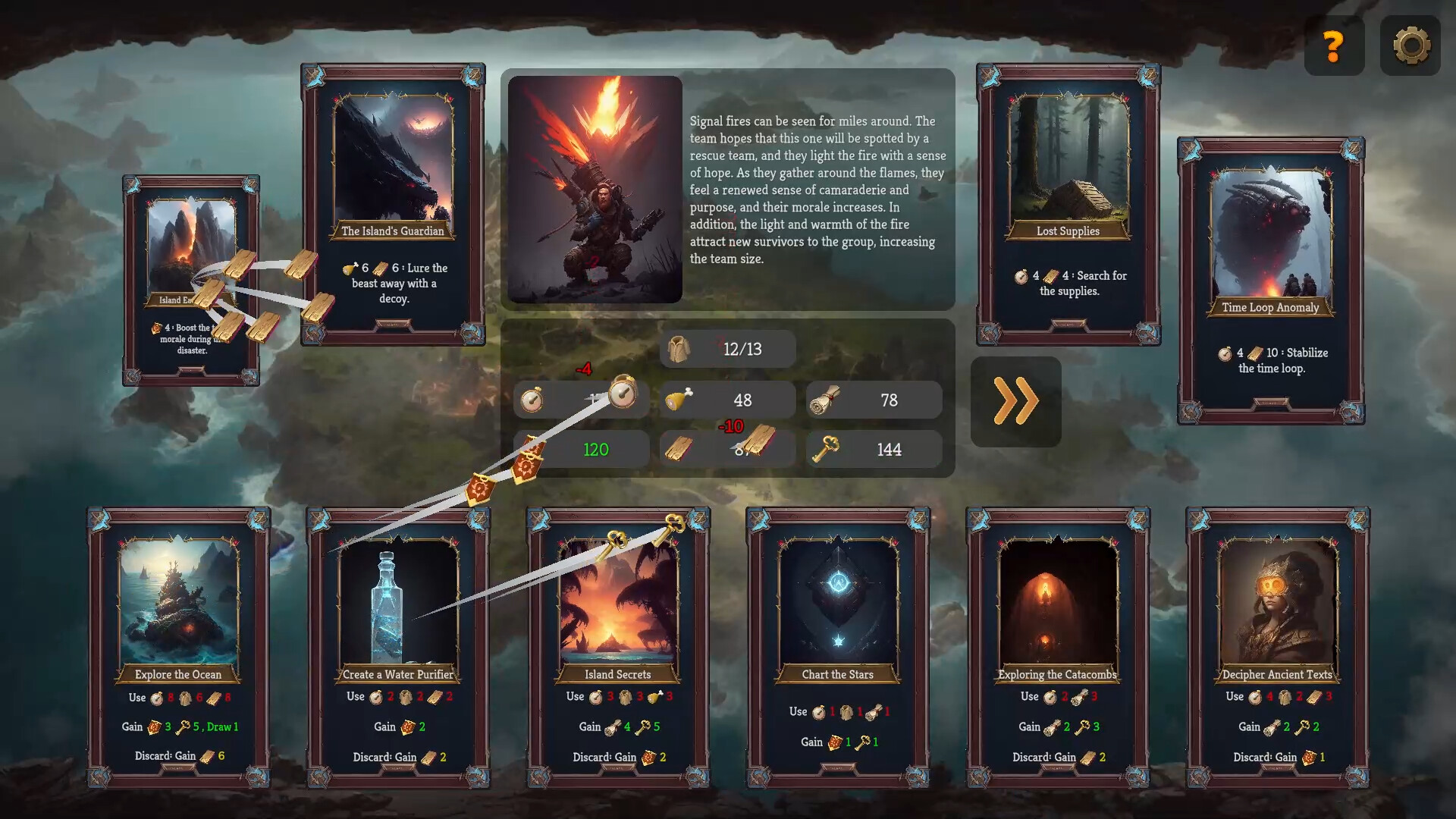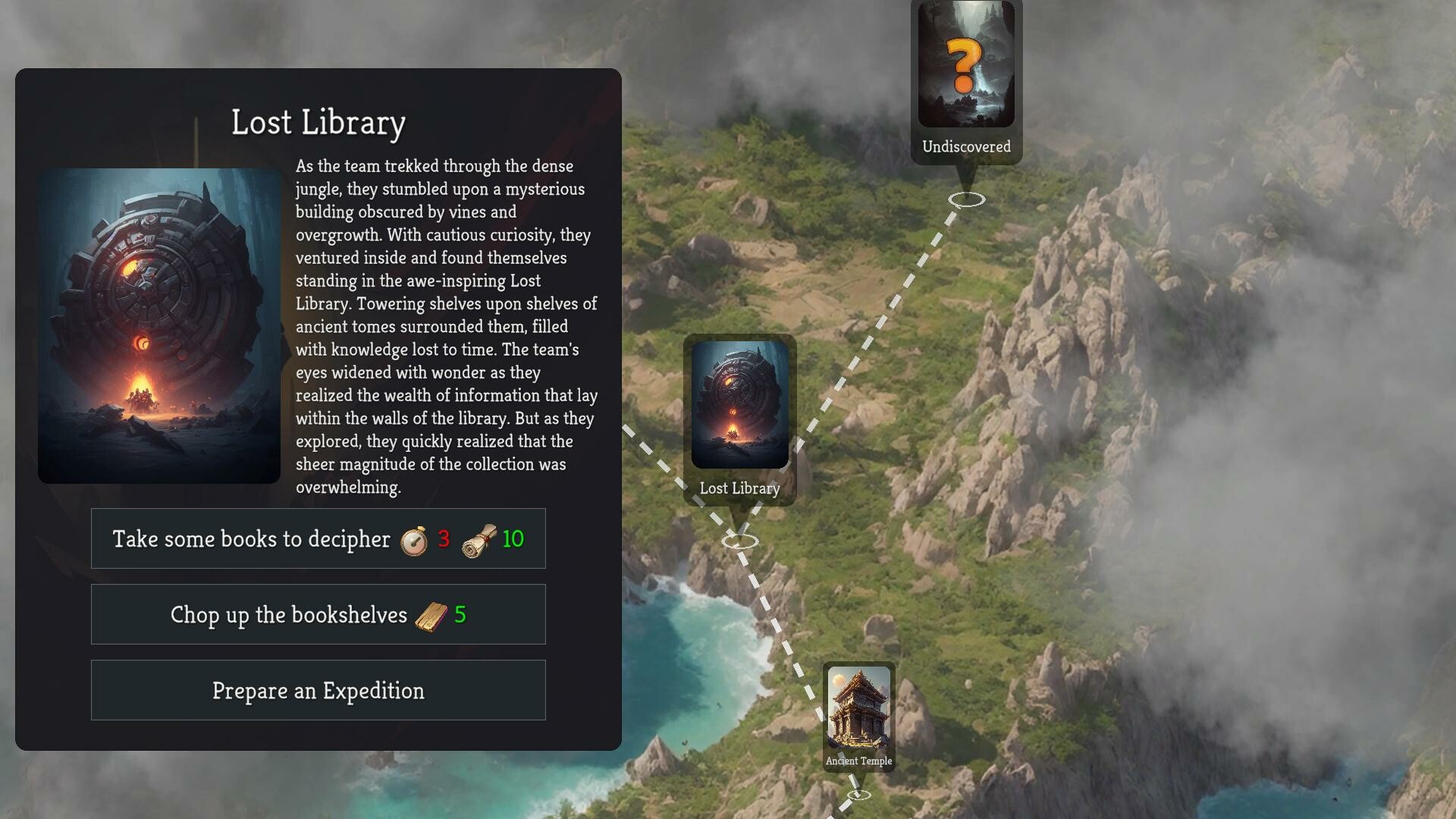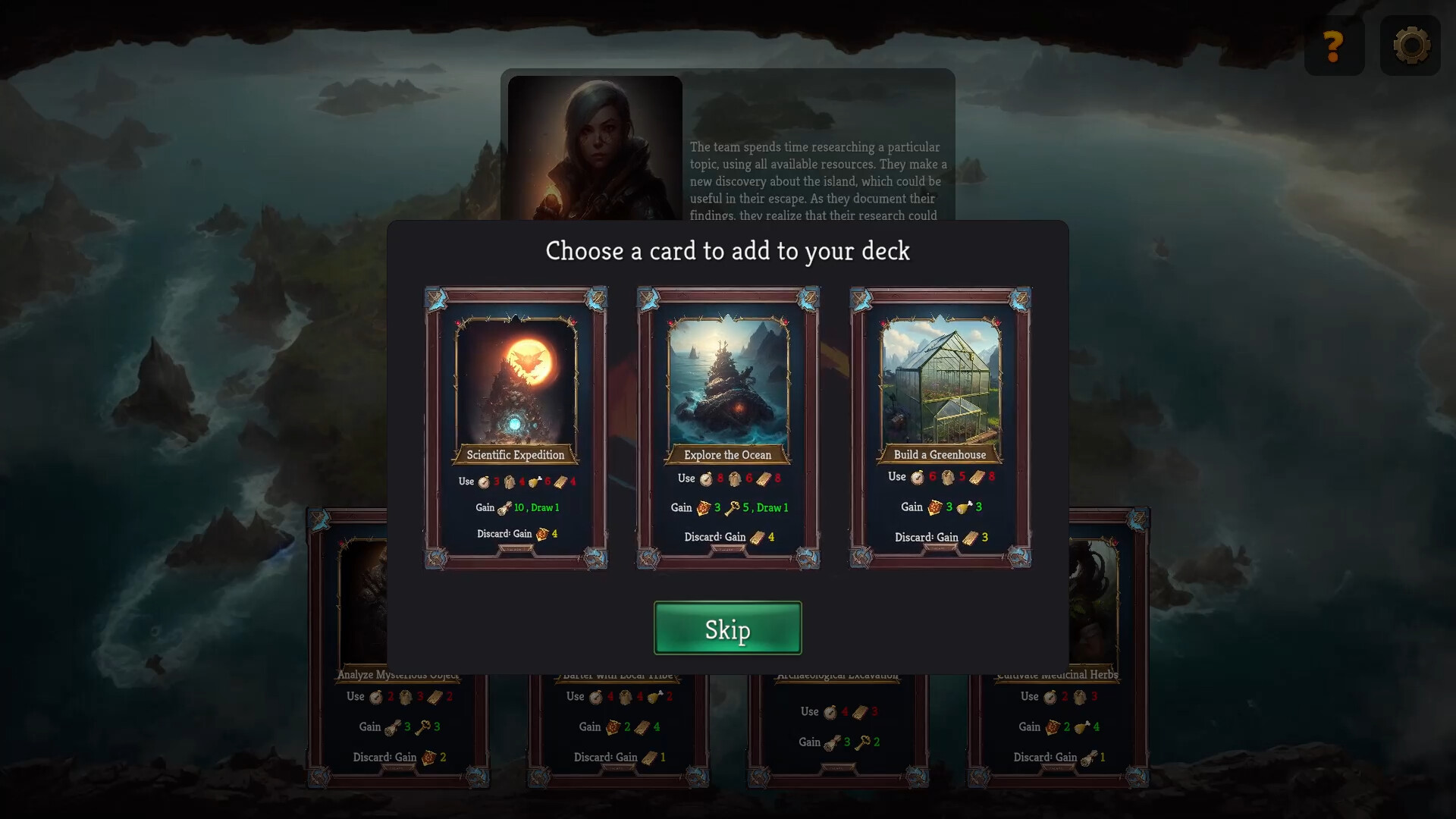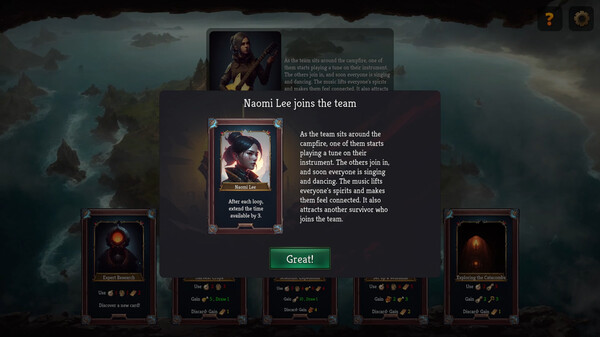
A unique blend of roguelike deck-building and survival strategy where you find yourself on a mysterious island trapped in a time loop. Establish a base, discover new technologies, build a strong team, and uncover ancient secrets better left uncovered! Will you survive and escape the island?
Explore and Overcome
Explore the island, scavenge for materials, and overcome unique events. Make impactful decisions, strategize your resources, and keep an eye on your team's health and morale.
Discover new technologies
Research new technologies to improve your deck and increase your chances of survival. Evolution is key!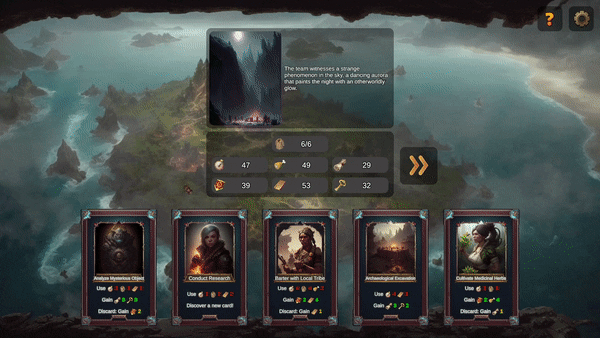
Journey through the time loop
When you run out of time, your team will be looped back to the beginning - keeping some of your progress and all unlocked cards. Use this to your advantage and escape from events you can't handle!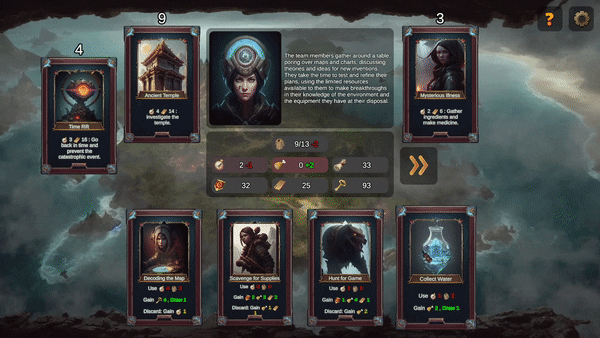
Wishlist now
Add to your wishlist now, to get notified of updates and an upcoming demo!As we approach the new year, it's a tradition to write my Yearly Wrapup, and see what I spent (most) of my time with!
I came up with the initial concept of Temporal Shore in February while participating in a game jam, and quickly saw the game could provide an interesting twist to a well-known mechanic, resulting in a fun game. I also shared the prototype with a few players and they all enjoyed playing it, so I decided to dedicate more time to turn it into a proper game.
Since the initial prototype was made in full in 6 days, the first challenge was to figure out how to make the game interesting for more than one playthrough. Players needed around 15-20 minutes to win the game, and once that was achieved, there was no real incentive to playit again. Of course, there were new cards, events, and playstyles that allowed for some replayability, but clearly,it wasn't enough. So I started looking at adding depth to the game.
As a result of this process, a lot of mechanics were added or reworked, resulting in a diverse and interesting experience each time someone plays it. My goal is to provide a similar experience to strategy games, where players can pick the same faction, and same map, but still have very different experiences from session to session, all boiled down to seemingly simple, but underneath complex card-game mechanics.
When asking what are the most exciting bits of the game, I always came to the same conclusion: exploration. While the initial prototype only tested the idea of resource management and basic interactions with events - in most cases, resulting in either a gain or loss of resources -, exploring the unknown of the island, discovering long abandoned establishments, stumbling upon sacred relics, or even finding traces of another life-form is what would keep me playing.
Finding the right way to present exploration in a card game is no easy task. I spent around 4 months exploring different ideas, including a node-based map, as shown on the Steam page screenshot and gif, as well as a full 3D hex tile map, with a procedural, and explorable world, that also allowed for more complex building management. While it initially seemed promising, after spending a good amount of time in that direction, it became clear that it didn't have the factor I was looking for. So it was time to reevaluate, which direction the game should be heading. Is it goingto be a hex-based 4X with cards, or rather a digital board game, that captures the essence of tabletop games, lets the players immerse themselves into the world and its challenges, but does not do so by displaying a fancy, fully modeled 3D environment, and relies more on traditional ways of storytelling?
Once I got this main question answered it was time to look at the various mechanics the game will have to support this idea.
- Resource management will still be a core part of the game, but it's accompanied by constructing buildings, that can either produce passively each turn or give various bonuses.
- Exploration will be played with many exciting locations. After Scouting, we can find resource deposits,or some landmarklocations worth planning an expedition to. Exploring these locations will play out in short illustrated descriptions and picking choices.
- Characters are all named and unique, with strong abilities, and depending on which characters are in the team, different playstyles will be more viable. They also have backstories and personal preferences when working with one another or performing various activities.
- Events have been completely reworked. While originally, they had a countdown until they were resolved, and fulfilling their resource requirements simply avoided the bad consequences, now they are fully alive, and are the main drivers of the story.
- The type of events we will encounter fully depends on our play style. If we hunt a lot of wild animals to get food, we can expect an increasing number of wild animal attacks that we have to successfully fight back to avoid Disaster cards shuffled into our deck. If they are left unresolved, they can have devastating consequences. Nature is just one of the many elements that need careful balancing.
- The island is full of treasures, rare artifacts, andmagical places, thatcan makeourteam and settlement stronger. Since there's no such thing as too many bonuses, these powerful Perks can also influence what direction we should be building our decks toward.
- Research will remain very similar to the initial idea, but will open up as a shop, displaying various new technology cards we can purchase for Knowledge.
- The weather on the island can also be harsh, but we can also turn it to our benefit, with many buildings, character abilities, actions, and perks. Weather can also influence Exploration in a major way, for example, we can't explore the basement of the abandoned factory when it rains and it's full of water!
The whole story in the game is interconnected. What we do in one session can have consequences in another, unlocking new paths, and closing others, allowing us to better understand the island and its surrounding lore.
Last, but not least, Temporal Shore recently crossed the 1000 wishlist mark, so a colossal thank you to everyone who found the game interesting even in its current form! We know that what we have shown on the Store page via descriptions, screenshots, and the trailer is a really, really tiny bit of the full game, and we can't wait to show more of it, and more importantly, release a demo so you can all experience it for yourselves! We still have a lot of work to do, but we are committed to delivering a truly unique experience for you all!
[ 6416 ]
[ 7155 ]
[ 3628 ]
[ 4850 ]

